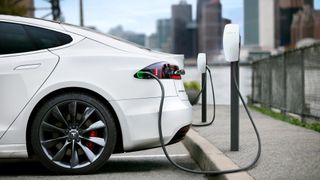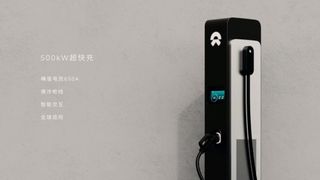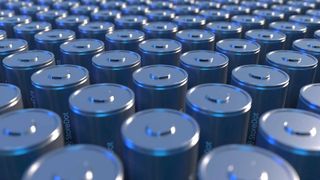EV adoption needs faster chargers - Chinese companies show the way
Others lag a lot behind

One of the impediments to faster electric vehicles (EVs) adoption by the public is the fact that the charging is not fast. Those used to typical petroleum stations where you get your job done in a few minutes, will find that the charging of EVs is a time-consuming and laborious process. And world over, both EV makers and battery companies are working overtime to provide the fastest possible EV charging experience.
But going by the official announcements by the various companies in the ecosystem across the world, it emerges that the Chinese, who are anyway leading the EV race, are also topping the charts in reducing the battery charging time in the EVs.
In May this year, the Chinese company XPeng Motors said it would soon deploy 480-kW next-generation supercharging piles. With this, EVs can get 200 kilometers in as little as five minutes of charging time, and can charge the battery from 10% to 80% in 12 minutes. It is claimed to be four times faster than those currently available in the market and 12 times faster than mainstream charging stations.
Chinese carmaker GAC (Aion) has also unveiled a next-generation LFP battery designed to improve energy density as well as low-temperature, fast-charging and durability indicators. It also has a 480 kW charger coming soon.
Nio announces 500 kW chargers

Now, upping the ante, another Chinese electric car manufacturer Nio has said that it will start installing a rnew 500 kW fast charging station in China and Europe this year. As Nio chargers have 20 kW more power than that will be offered by Xpeng, the performance figures should be better and more attractive. With 500 kW and a current of up to 650 amps, Nio charging network should be in big demand. It is already in a partnership with energy giant Shell for charging and battery swap facilities in both China and Europe.
Nio has also announced plans to start producing its own developed battery packs in 2024. The 800-volt battery packs are to be used in models of the new brand for more affordable electric cars. In the future the company also plans to manufacture its own cells. It is also developing V2G (Vehicle to Grid) technology that will allow the batteries to provide energy storage for local power grids using its new back end interface.
StoreDot also in the race

Aside from the Chinese companies, it is the Israeli firm StoreDot that is spearheading the faster-charging challenge. It has successfully, publicly demonstrated its ability to charge a full-scale EV battery cell with the energy for 100 miles (160 kms) in just 5 minutes live on stage. StoreDot has been developing lithium ion-based battery technologies, using nanomaterials and organic and inorganic compounds, that enable ultra-fast charging for the mobile and industrial markets.
Get daily insight, inspiration and deals in your inbox
Get the hottest deals available in your inbox plus news, reviews, opinion, analysis and more from the TechRadar team.
Faster charging, and long-lasting batteries in EVs can go a long way in addressing 'range anxiety' among drivers. And this can help speed up the adoption of electric vehicles in the mainstream, a move many believe will help the world cut down on fossil fuels.
Chinese companies and a lone Israeli firm has taken the lead. Now the world waits for European and American companies to respond suitably.
- Amazon Prime Day 2022: Full details of all deals and offers

Over three decades as a journalist covering current affairs, politics, sports and now technology. Former Editor of News Today, writer of humour columns across publications and a hardcore cricket and cinema enthusiast. He writes about technology trends and suggest movies and shows to watch on OTT platforms.
Most Popular
